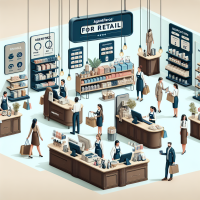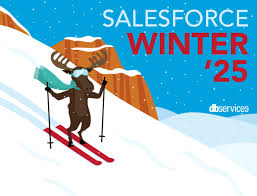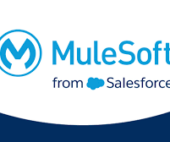Value-conscious consumers are increasingly opting for lower-cost options, waiting strategically for discounts, and turning to budget-friendly Chinese shopping apps, leading to a projected 2% year-over-year (YoY) growth in holiday sales both in the U.S. and globally, according to the Salesforce Shopping Index. This index analyzes data from over 1.5 billion global consumers on retail sites. The Salesforce Holiday Forecast isn’t necessarily bleak, but it will leave some merchants feeling glum. In 2023, holiday sales grew by 3% YoY, reaching .17 trillion. However, Salesforce forecasts that global sales for November through December 2024 will only reach .19 trillion, with the U.S. contributing $277 billion. This modest projection aligns with Salesforce consumer surveys, which indicate that while 47% of shoppers plan to spend the same amount as in 2023, 40% intend to spend less this year. “The global economy remains fraught with risks, despite inflation stabilizing,” said Rob Garf, VP and General Manager of Consumer Goods at Salesforce, during a recent briefing. “Interest rates are still high, global conflicts are disrupting supply chains, and we see consumers transferring inflationary costs to debt.” Indeed, a Salesforce survey conducted earlier this month revealed that 37% of consumers are using credit cards more frequently than last year, 32% are turning to buy now, pay later (BNPL) services, and 43% are carrying more monthly debt. Rising Popularity of Chinese Shopping Apps Consumers seeking value are gravitating towards deep-discount Chinese shopping apps like Temu, Shein, and increasingly, TikTok. According to Salesforce’s August 2024 survey, 63% of consumers have made a purchase through these apps in the past six months, and 50% plan to use them during the holiday season. These figures are even higher among Gen Z and millennial consumers, with 80% having purchased from these apps in the past six months and nearly 70% planning to do so during the holidays. Overall, Salesforce predicts that Chinese shopping apps will account for just over 21% of holiday purchases! “Temu and Shein lead the pack, but TikTok is gaining traction, up 24% since April, making it the third most popular app,” said Caila Schwartz, Director of Consumer Insights and Strategy at Salesforce. Consumers cite value as the primary reason for using these apps (58%), far ahead of fast shipping (28%). Consumers Plan to Wait for Cyber Week Deals Many shoppers intend to stretch their budgets by holding off on purchases until Cyber Week, the period around Thanksgiving that includes Black Friday and Cyber Monday. “In 2023, price-conscious consumers waited for Cyber Week to make purchases, and we expect this trend to be even stronger this year,” Schwartz noted. Salesforce data shows that 67% of shoppers are delaying “splurge” purchases until Cyber Week. Salesforce forecasts that global discount rates will briefly rise in October, likely coinciding with the fall edition of Amazon Prime Day, when many retailers run promotions to capture the holiday season’s momentum. Discount rates are expected to peak at an average of 28% globally during Cyber Week, with U.S. discounts forecasted to reach 30%. Shorter Season Highlights BOPIS Importance With only 27 days between Thanksgiving (Nov. 28) and Christmas this year, retailers with strong buy online, pick up in-store (BOPIS) offerings will have a significant advantage. Salesforce predicts that BOPIS will account for one-third (33%) of global online orders during the week before Christmas and Boxing Week. The compressed season will increase the pressure on retailers to execute BOPIS effectively, as failing to meet customer expectations could have serious reputational costs. “Retailers can extend the digital shopping season with BOPIS, but the real winners will be those who can deliver on it,” Garf emphasized. “Store associates are already feeling the strain, especially during the holidays, and some retailers have scaled back their BOPIS offerings, citing increased anxiety among both staff and customers.” Holiday Strategy: Prioritize Customer Acquisition To capture a share of what may be a smaller holiday “pie,” retailers should focus on customer acquisition—and the sooner, the better. With the 2024 elections in the U.S. and many other countries, advertising costs and space availability will be at a premium, making it harder for brands to reach consumers. “Online traffic is cheaper now than it will be in a few months, when political ad spending ramps up,” said David Oksman, VP of Marketing and DTC at Samsonite, who joined Garf and Schwartz at the briefing. “Acquisition costs will rise even more than we’ve seen before.” One additional challenge of holiday sales in an election year. Oksman recommends tried-and-true tactics for driving acquisition and gathering customer data: “Fall is a great time for sweepstakes and giveaways. The old playbooks still work, and customer acquisition is gold.” A sweepstakes prize like a shopping spree or offering exclusive early access to products or deals can incentivize consumers to share their email addresses with a brand. “Loyalty programs are another strong value proposition in the consumer’s mind,” Schwartz added. “Even if you’re not offering points, benefits like free returns or shipping can encourage shoppers to sign up.” Right now is the best time to engage in reactivation campaigns to old customers and prospects. Like Related Posts Salesforce OEM AppExchange Expanding its reach beyond CRM, Salesforce.com has launched a new service called AppExchange OEM Edition, aimed at non-CRM service providers. Read more The Salesforce Story In Marc Benioff’s own words How did salesforce.com grow from a start up in a rented apartment into the world’s Read more Salesforce Jigsaw Salesforce.com, a prominent figure in cloud computing, has finalized a deal to acquire Jigsaw, a wiki-style business contact database, for Read more Service Cloud with AI-Driven Intelligence Salesforce Enhances Service Cloud with AI-Driven Intelligence Engine Data science and analytics are rapidly becoming standard features in enterprise applications, Read more










